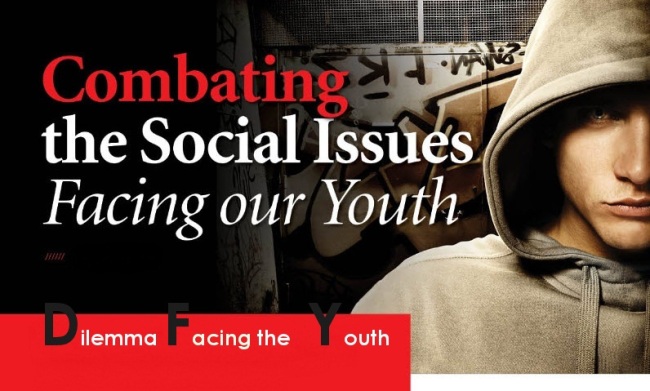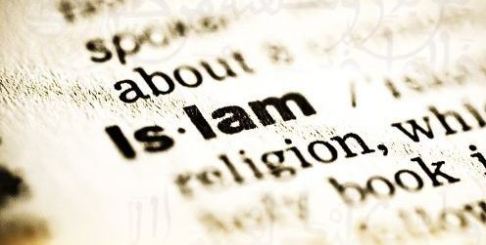In the Name of Allâh, the Most Beneficent, the Most Merciful
Shaykh Muhammad Saalih al-Uthaymeen hafidhahullaah
Introduction
Verily all praises are due to Allaah. We praise and glorify him, we seek help from him, we ask of his forgiveness and we turn to him. We seek refuge in him from the evil within us and from our evil deeds. Whomsoever Allaah guides there is no one to mislead him and whomsoever Allaah misguides; there is no one to guide him. I testify that there is none worthy of worship except Allaah, who is one, and he has no partner. I bear witness that Muhammad sallallaahu ‘alayhi wa sallam is his servant and his messenger. May Allaah bestow Durood (His choicest blessings) upon him and his noble family and companions and those who followed them with excellence.
It gives me great pleasure to present to my brothers a very serious problem not only in Islaamic society but in every society, and that is the problem facing the youth in this age. The hearts of the youth are sicken with psychological problems which sometimes makes them uneasy with life and they spend their energies in trying to free themselves from those difficulties and removing that sorrow. The removal of the difficulties will will never take place except with Deen (Religion) and character in which there is the strengthening of society and the betterment of this world and the hereafter. With this (religion and character), goodness and blessings will descend and evil and calamities will end.
Countries do prosper except with the help of its citizens and religion does not gain strength except with its followers. When the followers of Islaam will stand up for it, Allaah will help them no matter how many enemies they have. Allaah Ta’ala says:
“O believers, if you help Allaah’s cause, he will help you and make your feet firm (against your enemies) and those who disbelieved, woe unto them and their actions are in vain.” [47:7,8]
If Deen (religion) cannot be strong except with it’s followers, then it is necessary for us, the followers of Islaam and it’s flag-bearers, that we firstly stregthen ourselves so that we may become worthy of leadership and guidance. It is imperative that we learn from the book of Allaah (The Qur’aan) and the Sunnah of his Rasool (Messenger) sallallaahu ‘alayhi wa sallam which will equip us for speech, action, guiding and inviting. This will enable us to carry the weapons of the guidance of Islaam to all those who seek the truth and also to wield it against all those who seek falsehood.
Then it is necessary for us to put into practice what we have learnt from the Qur’aan and Sunnah, on the basis of Eemaan (faith), conviction and sincerity Our characteristic should not be one of speech only because if speech is not backed up by action, it’s effect will not extend beyond the speaker and this speech will have an opposite elect:
“O believers, why do you say that which you do not do. It is most hateful in the sight of Allaah that you say that which you do not practice.” [61:2-3]
It is most appropriate for us that we start at the beginning and ponder over our youth and their thoughts and actions, so that we may increase those which are good and correct those who are incorrect because the youth of today are the men of tomorrow and they are the foundation on which a future nation will be built. It is for this reason that the text of the Sharee’ah (Islaamic Law) has encouraged giving the youth due consideration and directing them to which is good and correct. They are the basis of the Ummah of which it’s future will be built and if their reformation is grounded upon the strong pillars of the Deen (Religion) and character, there will be a brilliant future for this Ummah, if Allaah wills.
A glance at the youth
If we closely exam the the youth, it will be possible for us to conclude that the youth are generally of three types: Rightly guided youth, deviated or perverted youth and youth who are confused (between evil and good).
The first type
Rightly guided youth are: Youth who firmly believe in all the implications of this Kalima (the shahadatain). They termly believe in their Deen (Religion). Eemaan (Faith) is beloved to them and they are content and satisfied with their Eemaan. They consider aquiring Imaam as a profit and deprivation from it as a big loss.
Youth who worship Allaah sincerely. They worship Allaah alone who has no partner.
Youth who follow the Messenger of Allaah, Muhammad sallallaahu ‘alayhi wa sallam practically in his speech and action because they believe that he is the Messenger of Allaah and the leader of all messengers.
Youth who establish salah (Prayer) perfectly to the best of their ability, because they believe in the benefit and the religious, worldly and social merit found in prayer and the dangerous consequences of neglecting salah for both the individual andd the nation.
Youth who give Zakah in full to those who are deserving of it, because they believe that Zakah fulfils the needs of Islaam and it is one of the five Pillars of Islaam.
Youth who fast during the month of Ramadaan. They stop themselves from their desires and cravings, whether it is summer or winter because they believe that actions are for the pleasure of Allaah. Thus they give preference to that which pleases Allaah over that which they desire.
Youth who perform the compulsory duty of Hajj (Pilgrimage) to the sacred house of Allaah because they love Allaah. Thus they love the house of Allaah and they love going to the places of his mercy and forgiveness and collaborating with his Muslim brothers who come to these places.
Youth who believe in Allaah who is their creator and the creator of the skies and the each, because they see from amongst the signs of Allaah that which leaves no doubt even for a moment whatsoever in the existence and being of Allaah. They see in this vast unique universe, in the form and system of the universe, that which clearly indicates towards the existence of it’s creator and His total power and complete wisdom, because it is not possible for this universe to come into existence on it’s own, nor is it possible for it to come into existence coincidentally. The reason for this is that the universe was non-existent before it was brought into existence, and that which is non-existent cannot bring anything into existence, because it itself is non-existent.
It is not possible that the universe camee into existence coincidentally because it has a unique well-arranged system, which does not change nor variate from the procedure predestined for it.
“You will never find a change in the system of Allaah.” [33:62]
“You will never fmd any reversal in the system of Allaah.” [35:43]
“You will not see in the creation of the most gracious any disparity, so turn your vision again. Do you see any rupture? Then turn your vision again, a second time, your vision will return to you dull an in a state of fatigue.”[67:3-4]
The fact that this universe has a unique, well-arranged system, prevents it’s existence being coincidental. That which is in existence coincidentally will also have a system which is coincidental, which is likely to change or be disturbed in a short period of time.
Youth who believe in the angels of Allaah because Allaah has given information regarding them (the angels) in his book the Qur’aan and his Messenger sallallaahu ‘alayhi wa sallam has given information regarding to in the Sunnah (the traditions). The Qur’aan and Sunnah explain their qualities, their worship and their actions to which they rigidly stick to for the goodness of the creation. This clearly points to the existence of the angels.
Youth who believe in the Books of Allaah. Allaah revealed these books to his Messengers as a source of guidance for the creation towards the straight path. It is not possible for the mind of man to understand the intricacies of worship and social life except with the books of Allaah.
Youth who believe in the prophets and Messengers of Allaah whom Allaah sent to his creation to call them towards good and enjoin them with good and prevent them from evil so that people do not have any proof against Allaah after the sending of prophets. The very first Messenger was Nooh alayhis-salam and the last messenger was Muhammad sallallaahu ‘alayhi wa sallam.
Youth who believe in the last day in which people will be resurrected after dying, so they may be compensed for their actions. Whoever does good equal to an atom, will reap it, and whoever does evil equal to an atom, will reap it. This is the cosequence of this world, otherwise what is the benefit of life and what is the wisdom of life if there is no day for the creation in which the doer of good will be compensated for his good, and the perpetrator of evil, punished for his evil?
Youth who believe in the predestination of good and evil. Thus they believe that everything is with the decree of Allaah and his divine foreordainment. This is despite their belief in causes and their related effects and that for both good and evil there are means.
Youth who adhere to the advice of Allaah, His messengers, His book, the leaders of the Muslims and the general masses. They interact with Muslims with frankness and openness – the way it is incumbent upon them. They neither mislead, deceive nor conceal anything.
Youth who call towards Allaah with deep insight, in accordance to the manner Allaah has laid down in his book.
“Call towards the path of your Sustainer with wisdom and sound advice and debate with them in a manner that is befitting.” [16:125]
Youth who enjoin good and forbid from evil because they believe that in this is the success of the nation.
“You are the best of nations, taken out for the guidance of mankind. You enjoin good and forbid from evil and you have full faith in Allaah.” [3:110]
Youth who strive in the changing of evil in the way established by the Messenger of Allaah sallallaahu ‘alayhi wa sallam: “Whomsoever from amongst you see an evil he should change it with his hand. If he does not have the power to do this, then he should change it with his tongue. If he does not have the ability to do even this, then he should change it with his heart (by scheming in the eradication of this evil).” (Hadith)
Youth who speak the truth and accept the truth, because truth leads to good and good leads to paradise. A person will continue being truthful and pursue the truth until Allaah records him as being a truthful person.
Youth who love good for the general Muslims because they believe in the saying of Nabi sallallaahu ‘alayhi wa sallam: “None from amongst you can be a true believer until he loves for his (Muslim) brother that which he loves for himself.” (Hadith)
A teenager who is cognizant of his responsiblity to Allaah and his nation. He strives always for the goodness of his Deen (Religion), his nation and homeland, keeping far from egoism and far from giving consideration to his own good at the expense of the good of others.
A teenager who strives for the pleasure of Allaah and with the help of Allaah in the path of Allaah. He strives with sincerity without pride or want of reputation. He strikes with the help of Allaah without being conceited and without depending on his own might and power. He strives in the path of Allaah for the upliftment of his Deen without exceeding the bounds and without laxity. He strives with his tongues, hand and wealth in the manner that the needs of Islaam, and the Muslims demand of him.
Youth who have character and Deen in them, thus they are of refined character, religion, gentle, liberal, noble-minded. clean-hearted, steadfast, enduring and resolute. They do not waste any opportunity nor do they let compassion overcome intelligence and the need for reformation.
A teenager who is systematic. He works with wisdom and silence despite being firm and excellent in his work. He does not waste any opportunity but instead occupies himself in actions which are beneficial for him and his nation.
Together with this, this teenager safe-guards his Deen, character and conduct. Thus he is extremely distant from those qualities which contradict this, like kufr (disbelief), apostasy, inequity, disobedience, lowly character and evil mutual relations.
These types of youth are the pride of a nation and a symbol of it’s prosperity and Deen. These are the youth who will obtain the good of this world and the hereafter. They are the youth who we hope that Allaah, with his grace, will use to rectify the corruption amongst the Muslims and illuminate the spiritual path of the seekers of truth.
The second type
The second type of teenager is the one who is corrupt in his beliefs, irresponsible in his conduct, himself misled, ingulfed in vice; he does not accept the truth from anyone nor does he refrain from falsehood and he is selfish in his conduct. He is a teenager who is stubborn. He does not yield to the truth nor does he renounce falsehood. He does not care about his neglect of the rights of man nor the rights of Allaah. He is a confused teenager bereft of impartiality in his thinking and in his behaviour. Likewsie he lacks balance in all his affairs.
A teenager who is conceited with his own opinion as if truth flows from his tongue. He, in his opinion, is free from mishaps, while others are a source of mistakes and slip-ups as long as they contradict his option.
A teenager who has turnned away from the straight path in his deen and the accepted norms of conduct. The evil of his conduct has been made alluring to him. Therefore he regards it as virtuous. Thus he is the greatest of losers in respect of his deeds. These are the ones whose efforts have been wasted in this life, while they presumed that they were doing good.
He is an evil omen upon himself and a misfortune for his society, one who is driving his nation towards the lowest stage. He is a barrier between his nation and their respect and munificence, a lethal influence, difficult to treat – except if Allaah wishes. Allaah has power over everything.
The third type
The third type of teenager is he who is confused and doubtful. He recognises the truth and is content with it. He lives in a guarded society except that the doors of evil have opened up for him from every direction. This has created doubt in his beliefs, deviation in his conduct, weakness in his action, a foray from known practices and an influx of diverse falsehood. Thus he is in eternal thought and inner search. Opposing this influx or movement (of falsehood) is uncertainty. He does not know whether the truth lies in the prevailing idealogies or in the way of his pious predecessors and his safeguarded society. He is thus in doubt – sometimes he accords preference to one side and sometimes the next according to the strength of the influx of these thoughts.
This type of teenager is passive in his life. He is in need of captivating strength which will guide him towards the enclosure of truth and the path of goodness. How easy will this not be Allaah prepares for him a person who calls towards good, who is wise, knowledgeable and of good intentions?
These types of teenagers are found in abundance. They obtain a smattering of Islaamic education but they acquire much more secular knowlege which conflicts with the basics of Deen either in reality or in their presumptions. Thus they are helpless between the 2 cultures. It is possible for them to gain liberation from this helplessness by establishing themselves upon Islaamic education and acquiring this education from it’s original sources – the book of Allaah (the Qur’aan) and the Sunnah (traditions) of Muhammad sallallaahu ‘alayhi wa sallam at the hands of devoted Ulema (learned men) – and this is not difficult for them.
The digression of the youth and their problems
The reasons for the digression and the difficulties of the youth are many and varied. Man, during the phase of youths is to a large extent in the process of the development of the body, thought processes and the mind, because this is the phase of growth during which he undergoes rapid changes. In this stage it is of extreme importance that the tools of self-control are prepared for him coupled with wise leadership to steer him towards the straight path.
From amongst the important reasons for this retrogression are the following:
1) Idleness: Idleness is a malady which kills thought processes, the mind and the strength of the body, because the body is always in need of movement and work. Thus when the body is idle thoughts become dull and the mind weakens, body movements weaken and devilish insinuations and evil thoughts form on to the heart. Many times an exil intention is create as a result of this suppression which was a direct consequence of idleness. The cure for this problem is that the teenage should strive in the attaining of work which befits him like reading, business or writing which will then become a barrier between him and his idleness. It is necessary that he becomes a stable member of society, working in his society for himself and for others.
2) Alienation and aloofness between the youth and the elderly members of their families or between the youth and others: We see some elders witnessing deviation in their youth but they hesitate, are disconcerted, helpless to strengthen them and dependent from reforming them. The result of this is hatred is for these youth, estrangement from them and a dont-care attitude towards their condition, whether their condition is one of piety or corruption. Sometimes they pass judgement concerning all the youth which translates into a blank impression of the youth in general. This splits the community whereby the youth and their elders begin looking at one another with the eyes of contempt. This is amongst the greatest dangers that can encompass human society. The cure for this problem is that the youth and their elders should make an effort to eradicate this alienation between them and trust everyone because the society together with it’s youth and elders are like one body. When one part of it decays, it leads to the decay of the whole body. It is incumbent upon the elders that they give deep thought to their responsibility concerning the reformation of the youth and dispel this contagious despondency from their hearts, because Allaah has power over everything. How may corrupt people did Allaah not guide, after which they became beacons of guidance and callers towards reform? It is necessary for the youths to entertain respect, regard for the opinions and acceptance of the guidance of their seniors who experienced the realities of life which these youth have not. When the wisdom of the seniors will meet with the strength of the youth, the society will attain prosperity with the will of Allaah.
3) Liason with deviated and corrupt people and befriending them. This has a great effect on the mind, the thinking and ways of the youth. For this reason Nabi sallallaahu ‘alayhi wa sallam is reported to have said: “A person is on the Deen (Religion) of his companion, so each one of you should take care in the matter of who he befriends.” He sallallaahu ‘alayhi wa sallam also said: “The similitude of an evil companion is like an ironsmith using an oven. Either you will burn your clothes in his company or you will experience an offensive odour.” (Hadith) The sure for this problem is that the teenager should choose for his companionship those who are good and intelligent go that he may benefit from their virtue, reformed ways and intelligence. He should weigh up their condition and reputation before befriending them. If they are people of character, virtue, correct Deen and good reputation, then befriend them. If they do not possess these qualities, then it is incumbent to distance oneself from them so that one is not deceived by sweet talk and beautiful outward appearances. This is deception and misguidance. This path is traversed by evil people to allure the simple-minded in order to increase their multitude and conseal their evil condition. A poet has said it most beautifully: Test men when you intend to befriend them, Scrutinize and study their affairs.
4) Reading of destructive periodicals, booklets and magazines which create doubt in the Deen of a person and in his beliefs. This draws a person towards the abrogation of virtuous character and lands him in Kufr (disbelief) and vice. This is especially true when the teenager does not possess deep Deeni education and acute thinking by means of which he can differentiate between truth and falsehood, benefit and harm The reading of these types of books totally confounds the because they imbibe a false pleasure in the minds and thinking of the youth without reservation. The cure for this problem is that he should keep away from these books and read other books which will plant in his heart the love of Allaah and his Rasool sallallaahu ‘alayhi wa sallam and the reality of Eemaan (Belief) and good deeds. No doubt his inner self will entice him greatly towards those books which he loved previously and make him feel discontent with other beneficial woks. This is similar to the position of that person who lights with his inner self to establish the obedience of Allaah in his life, but his soul rebels and becomes involved in futility and lies. The most important of beneficial books is the book of Allaah and those which the people of knowledge have written by way commentary with correct transmission. In the same way the Sunnah of the Messenger of Allaah sallallaahu ‘alayhi wa sallam, then that which the people ofknowledge have written by extracting from these two sources or by way of deep understanding.
5) The impression of some youth that Islaam is a curtailment of freedom and a repression of strength. Thus they tum away from Islaam regarding it as retrogression and a barrier between them and progress. The cure for this problem is that the veil of the reality of Islaam be lifted from these youth who are ignorant of it’s reality because of their wrong nations, inadequate knowledge or both. Islaam does not restrict freedom but it is a control and a correct chanelling for it, so much so that the freedom of one person does not clash with the freedom of the next person. General freedom leads to chaos and eruption. It is for this reason that the injunctions of Deen are called Hudood (limits). If the injunction is one of prohibition Allaah says: “They are the limits imposed by Allaah, do not approach them.” [2:187] If it is one of consent, Allaah Ta’ala says, “These are the limits imposed by Allaah, do not transgress them.”[2:229] This is the difference between restriction (which is the impression of some) and control and guidance which the most wise, the all-knowing Allaah has decreed for his servants. There is no basis for this problem because systemisation is a reality in all domains and man by nature is submissive to this systematic reality. He is submissive to the pressure of hunger and thirst and to the system of his food and drink as far as quantity, quality and type is concerned so that he may safeguard his body and it’s health. He is in the same way submissive to the system of his society, holding on to the customs of his city in it’s dwellings, garb and modes of transport. If he does not subject himself to this, he will be considered as being abnormal and he will be treated the way extraordinary people are treated. Life is totally a submission to specified limits so that everything progresses according to it’s intended aim. This subjucation is for the order of society, eg. submission which is necessary for the reformation of society and the prevention of anarchy. In the same way submission to the system of the Sharee’ah entails that which is necessary for the reformation of the naion so how can some people be annoyed with it and think of it as being a restriction of freedom? Verily this is a great untruth and a baseless, evil presumption. Islaam in the same way is not a suppression of capabilities. It is a wide sphere for all strengths. Islaam calls towards reflection so that man contemplates and his mind and thoughts grow. Allaah Ta’ala says: “Say O Muhammad, I advise you of one thing only, that you stand up in two’s and singlely and then reflect.” [34:46] and Allaah says: “Say O Muhammad, see what is in the heavens and the earth.” [10:101] Islaam does not confine itself to calling towards contemplation and deep thought but it denounces those who do not think, observe and contemplate. Allaah Ta’ala says: “Have they not considered the dominion of the heavens and the earth, and what things Allaah has created?” [7:185] Allaah Ta’ala says: “Have they not pondered upon themselves? Allaah did not create the heavens and the earth and that which is between them, except with truth.” [30:8] And Allaah Ta’ala says: “And he who we give old age. We reverse him in creation (making him go back to weakness after strength), do you not ponder?” [36:68]
The order of observing and pondering opens up the power of the mind and thoughts, so how can some people say; that it restricts capabilities? Dreadful is the word they utter; they only speak a lie. Islaam has legalized for it’s people all pleasures in which there is no harm for the individual either physically, mentally or spiritually. Islaam has authorised the eating and drinking of all pure things: “O believers, eat of the good things from which we have provided you, and render thanks to Allaah.” [2:172] Allaah Ta’ala says: ”And eat and drink and do not waste. He does not love those who waste.” [7:31] Islaam has legalised all clothing to the demands of wisdom and nature:“O Children of Adam! We have revealed unto you clothing to conceal your shame, and splendid countenance, but the clothing of piety, that is best.”[7:26] Allaah Ta’ala says: “Say O Muhammed, who has forbidden the beautiful (gifts) of Allaah which He has produced for His servants and the pure things (which He hasproduced) for sustenance? Say, they are in the life of this world for those who believe, and only for them on the Day of Judgement.”[7:32] He has authorised enjoyment of women by legitimate Nikaah (Marriage): Allaah Ta’ala says: “Marry women of your choice, two, or three, or four but if you fear that you shall not be able to deal justly with them, then only one.” [4:3] In the domain of economics, Islaam has not suppressed the capabilities of it’s people but legalized for them all business dealings which are just and emanate from mutual happiness. Allaah says: “Allaah has permitted trade and forbidden usury.”[2:276] And he says: “lt is he who has made the earth manageable for you, so traverse through its tracks and eat of the sustenance which He provides, and He is responsible for the resurrection.” [67:15] And he says, “And when the prayer is finished, then disperse through the land, and seek of the bounty of Allaah.” [62:10] After all this, is the impression or saying of some people correct, that Islaam suppresses capabilities?
Problems that recur in the heart of the teenager
Misgivings and evil thoughts keep recurring on a dead heart which contradicts Deen. It is for this reason that when it was said to Ibn Masud or Ibn-e-Abbas (Radiallaahu anhum) that the Jews say that they do not get evil thoughts in their prayers, i.e. they do not experience apprehensions, he replied,”They have spoken the truth, what can Shaytaan do with an empty heart?”
If the heart is alive and there is even a bit of Eemaan (faith) in it, then Shaytaan attacks it. His attack is devoid of leniency and sluggishness. He throws in the heart such evil thoughts which are detrimental to Deen. It is most destructive if the servant accepts these evil thoughts until Shaytaan induces him to create doubts in his Lord, Deen and beliefs. If he finds in the heart any weakness and frustration, Shaytaan overwhelms that heart until he takes it out of the confines of Deen. However, if he finds in the heart strength and steadfastness, he devises a contemptible scheme to mislead the servant.
These evil thoughts that Shaytaan casts in the him will not harm a person if he practices the therapy mentioned by Rasulullah sallallaahu ‘alayhi wa sallam concerning it: Ibn-e-Abbas (RadiAllaahu anhuma) narrates than a person came to Nabi sallallaahu ‘alayhi wa sallam and said: “I am having a certain feeling within myself which being a burning ember is more desirable to me than my uttering it.” Nabi sallallaahu ‘alayhi wa sallam said: “All praise are due to Allaah who has rejected his scheme i.e. driven away Shaytaan’s evil thoughts.” (Hadith)
Some people from the Sahabah (companions) came and said, “O Messenger of Allaah, we find within ourselves (such a feeling) which overwhelms each one of us from speaking about it i.e. he feels it imposing to speak about it.” Nabi sallallaahu ‘alayhi wa sallam asked: “Do you also experience it?” The companions replied, “Yes.” Nabi sallallaahu ‘alayhi wa sallam replied, “That is true faith (Eemaan).”The meaning of having true faith is that evil thoughts and your rejection of them does not harm your Eemaan even a bit but it is a proof that your Imaam is sincere and has not been affected by any loss.
Nabi sallallaahu ‘alayhi wa sallam has said: “Shaytaan (the Devil) comes to one of you and says. Who has created this? Who has created this? until he says : Who has created your Lord? When he reaches this limit, then seek refuge in Allaah and in his compassion.” (Hadith)
It is state in another Hadith regarding the same situation. “You should say: I believe in Allaah and his messengers.” And in a similar Hadith that Abu Dawood has narrated, Nabi sallallaahu ‘alayhi wa sallam said: “Say Allaah is one, Allaah is independent, He does not give birth nor was he given birth to, there blow a little saliva towards the left thrice and seek refuge from the accursed Shaytaan.”
Once the Sahaaba (RadiAllaahu anhum) described this ambition to Nabi sallallaahu ‘alayhi wa sallam for which he prescribed the cure in four steps:
First: The termination of evil noughts by completely shunning and forgetting them until they do not exist and then occupying oneself away from these thoughts with balanced thinking.
Second: Seek refuge in Allaah from these evil thoughts and from the accursed Shaytaan.
Third: He should say, I believe in Allaah and his Messengers.
Fourth: He should say, Allaah is one, Allaah is independent, He does not give birth nor was he given birth to, there is none comparable to Him, spit to his left side thrice and say, “I seek refuge in Allaah from the cursed Shaytaan.”
Confusion Regarding the issue of predestination
From those issues which keep recurring and leaves the youth bewildered is the issue of predestination. Belief in predestination is one of the pillars of Eemaan and Imaam is not complete without it. This belief entails the belief that Allaah, who is pure, knows what is going to happen and what is predestined for the skies and earth, as Allaah says: “Don’t you know that Allaah knows all that is in the heaven and on the earth? Indeed, it is all in a record and it is easy for Allaah.” [22:70]
Nabi sallallaahu ‘alayhi wa sallam has prevented us from quarrelling and debating in the matter of predestination. Abu Hurairah (RadiAllaahu-anhu) relates that RasullAllaah sallallaahu ‘alayhi wa sallam came to us while we were debating about predestination. Seeing this he became angry until his blessed face turned red with anger. Then he said: “Did I order you to do this? Is it for this that I was at to you? The nations before you were destroyed when they debated this issue. I take a firm resolution from you that you will not quarrell in this matter.” (Hadith)
Engrossing oneself and quarrelling in the matter of predestination lands a person in a maize from which he does not have the ability to emerge. The path of salvation is that you should aspire to do good and strive in the doing of good as you have been ordered because Allaah, who is pure, has granted you intellect and understanding, and sent to you Messengers and revealed with them. Allaah Ta’ala says, “So that mankind, after the coming of the Messengers, should have no proof against Allaah for Allaah is Exalted in Power and Wise.” [4:165]
When Nabi sallallaahu ‘alayhi wa sallam informed his companions that there is no person except that his abode in Jannah (heaven) and Jahannam (hell) has been foreordained, they said, “O Messenger of Allaah, should we not depend upon our book (predestinations) and leave the doing of good deeds.” Nabi sallallaahu ‘alayhi wa sallam replied: “Do good deeds, everything is made easy for what is was created. Those who are from the fortunate people, the actions of fortunate people will be made easy for them, and those who are from the wretched people, for them the actions of the wretched will be made easy.” Then the Messenger of Allaah sallallaahu ‘alayhi wa sallam recited the verse: “He who gives in charity and fears (Allaah), and in all sincerity testifies to good, We will indeed make smooth for him the path to ease, but he who is a greedy miser and thinks himself self-sufficient and disbelieves in good, We will indeed make his path to adversity easy.”[92:5-10]
Nabi sallallaahu ‘alayhi wa sallam ordered them to do good deeds and did not permit them to depend upon their preordainment because those who are predestined to be from the people of Jannah will not be from amongst them except if they do the actions and deeds of the people of Jannah, and those who are predestined to be from the people of Hell will not be from amongst them except if they do their actions. Action is according to the ability of a person because he himself knows that Allaah has given him a choice in the doing of action and predestined it for him. If he wishes, he can either do it or leave it.
If a man makes an intention to travel, then he will travel and if he intends halting, then he will do so. If sees a fire, he will flee from it and if he sees a thing which is beloved to him, he will go forward. Similarly with regards to obedience and sin, a person practices them by his own choice and leaves them by his own choice.
There are two objections according to some people regarding the issue of predestination:
Firstly: Man sees that he does something by his own choice and he leaves all action by his own choice without perceiving any compulsion upon the doing or leaving of an action, so how does this coincide with the belief that everything is with the decree and foreordainment of Allaah? The answer to this is that if we contemplate the action and movement of man, we will fmd that it is the result of two things viz. intention i.e. the choice to do something, and ability. If these two things are not found, the action will not occur. Intention and ability are both the creation of Allaah, who is Most Pure, because intention is the result of the strength of-the mind and ability is the result of the strength of the body. If Allaah so wishes he can snatch away the mind of man and he would be left without any intention or snatch away his ability leaving action impossible for him. When man makes a firm intention to do an action and he executes it, it is our knowledge with conviction that Allaah had intended and destined that action, otherwise his intention would have changed or he would have found a barrier between himself and ability to carry out that action. A Bedouin was asked, “How do you recognise Allaah?” He replied, “By the breaking of firm intentions and the changing of resolutions.”
The second objection: which recurs according to some people in the matter of-predestination is that man will be punished for his sinful deeds. How can he be punished for it when it is predestined for him and it is not possible for him to escape from something which is predestined for him. How is he rewarded for his obedience when it is predestined for him and it is not possible for him to escape from something which is predestined for him? It is unjust that you make predestination an argument for disobedience while you do not make it an argument for obedience. The second answer is that Allaah has negated this argument in the Qur’aan and classified it as an ignorant statement. Thus Allaah Ta’ala says, “Soon the idolaters will say, if Allaah willed we would not have ascribed partners to Allaah nor would our fathers have, nor would we have forbidden anything. In the same way their ancestors argued falsely, until they tasted our wrath. Say, have you any (certain) knowledge? If so, produce it before us. You follow nothing but presumption and you only lie.” [6: 148]
Allaah Ta’ala has explained that these objectors of predestination, have in their ranks those who were before them, who falsified (the Messengers) the way these people falsify (the Prophets), and they remained firm upon this action of theirs until they toted Allaah’s punishment. If their proof was correct, Allaah would not have made the taste of His punishment. Then Allaah ordered his Nabi to challenge them to prove the correctness of their beliefs and explain to them that they have no proof for this.
The third answer is that preordainment is a hidden secret. Nobody knows about it except Allaah until it happens. How can a sinner have knowledge about the txt that Allaah has predestined for him sin until he does it? Is it not possible that Allaah had ordained for him obedience? So why does he not in place of going towards sin, go towards obedience and say Allaah has definitely predestined for me that I obey him?
The fourth answer is that Allaah has blessed man by what he has given him of intelligence and understanding, and revealed upon him books and sent to him messengers and outlined to him what is beneficial and what is non-beneficial and blessed him with intention and ability with which he has the power to traverse either path. So why does lis sinner choose the path of harm over the path of benefit?
If this sinner intended going on a journey to another place and he had two roads to choose from: one is easy and peaceful and the other difficult and frightful, he most definitely would traverse the easy, peaceful path and not the difficult, frightful path because of the argument that Allaah had predestined it for him. If he traversed the path of difficulty and used the argument that Allaah had predestined it for him, people would think of him as being naive and insane. In the same way are the paths of good and evil. Man will traverse the path of good and not deceive himself by traversing the path of evil on the pretext that Allaah had predestined it for him. We see that every person has the ability to earn his livelihood. We see that he traverses every path in the gaining of his livelihood. He dos not sit in his house and leave earning, holding on to the excuse of predestination.
Otherwise, what is the difference between striving for the world and striving in the obedience of Allaah? Why do you make divine foredainment a proof for yourself upon the leaving out of obedient and you do not make it a proof for the leaving out of worldly action? The clarity of an argument is in it’s place but desires make a person blind and deaf.
Ahadeeth in which there is mention of the youth
When these words have revolved around the problems of the youth, I would like to mention some Ahadith in which there is a mention of the youth. From amongst them are:
1. “Your Lord is pleased with that teenager who is free of youthful passion.” (Narrated by Ahmad)
2. “There are seven such persons for whom Allaah will provide shade from his shade on that day who there will be no other shade except his. A just ruler, a youth who was nurtured in the obedience of Allaah, a man whose heart is attached to the Masjid, two people who love each other only for the pleasure of Allaah. They meet for the pleasure of Allaah. A man who is enticed by a woman of status and beauty and he says, “I fear Allaah.” A man who given charity so secretly that his left hand does not know what his right hand has given and a person who remembers Allaah in seclusion and tears flow from his eyes (due to the fear of Allaah).” (Narrated by Bukhaaree and Muslim)
3. “Hasan and Husain (RadiAllaahu-anhuma) will both be the leaders of the youth of Jannah.”(Narrated by Tirmidhi)
4. “It will be said to the people of Jannah, for you is youth and you will never grow old.” (Narratted by Muslim)
5. “Never does a youngster honour an elderly person because of his old age but Allaah appoints somebody who will honour him during his old age.” (Narrated by Tirmidhi with a weak chain of narrators).
6. Abu Bakr said to Zaid bin Habit while Umar bin Khattaab was beside him (RadiAllaahu anhum):“You are a young, intelligently. We are not suspicious of you and you used to write the revelation for the Messenger of Allaah sallallaahu ‘alayhi wa sallam so pursue the Qur’aan and gather it”(Narrated by Bukhaaree)
7. Nabi sallallaahu ‘alayhi wa sallam came to a youngster while he was in the throes of death. Nabi sallallaahu ‘alayhi wa sallam asked him, “In what condition do you find yourself?” He said, “I have hope in Allaah, O Messenger of Allaah and I fear for my sins.” Nabi sallallaahu ‘alayhi wa sallam said,“These two things (hope ad fear) do not gather in the heart of a servant at a moment like this, but Allaah grants him what he hopes for and saves him from that which he fears.” (Narrated by Ibn-e-Majah)
8. Bara Bin ‘Aazib (RadiAllaahu anhu) said concerning the battle of Hunain, “No, by Allaah, Rasullaah sallallaahu ‘alayhi wa sallam did not turn away, but even his young companions who were fatigued and ill equiped emerged to fight.” (Narrated by Bukhaaree)
9. Ibn-e-Mas’ood (RadiAllaahu anhu) narrates, “We used to fight with Nabi sallallaahu ‘alayhi wa sallam while we were young.” (Narrated by Ahmed)
10. Anas Bin Malik (RadiAllaahu anhu) narrates: “There were seventy youth from among the Ansar, who were called Qurra (reciters), who used to remain in the masjid. When evening approached, they retreated to a corner in Medinah, where they learnt, taught each other and prayed. Their families were under the impression that they were in the Masjid and the people of the Masjid were under the impression that they were with their families, until the crack of dawn. They brought fresh water and gathered firewood which they presented at the room of Nabi sallallaahu ‘alayhi wa sallam.” (Narrated by Ahmad). Wiih this they used to buy food for the Ashaabus Suffah (people of the platform). The people of the platform were those destitutes who migrated to Madinah. They did not have any family in Madinah so they sought refuge at a platform in the Masjid.
11. Alqamah who is one of the companions of Ibn Masood (RadiAllaahu anhu) narrates, he says, “I was walking with Abdullah by Mina when he met Uthmaan (RadiAllaahu anhu). Abdullah stood talking with Uthmaan (RadiAllaahu anhu) when he said, “O Abu Abdir-Rahman, should we not marry you to a young girl so that she would remind you of some things which have passed during your era.” Abdullah said: “If you say that then surely Rasulullah sallallaahu ‘alayhi wa sallam told us, “O youth. Whoever from amongst you has the means, should marry, because it is more effective in the safeguarding of the gaze and more chaste for the private parts. If one does not have the ability to do this, then he should fast because it is a shield for him (from sins).” (Narrated by Bukhaaree and Muslim).
12. In the tradition concerning Dajjaal reported from Nabi sallallaahu ‘alayhi wa sallam, “Dajjaal will call a person who is in the prime of his youth and strike him with a sword, slicing him into two pieces, like the striking of a target. Then Dajjaal will call the youth. The youth will respond, his face being radiant – laughing.” (Narrated by Muslim)
13. Malik Bin Huwairith (RadiAllaahu anbu) narrates, “We came to Rasullah sallallaahu ‘alayhi wa sallam while we were youngsters of similar age. We stayed by him for twenty days and nights. The Messenger of Allaah sallallaahu ‘alayhi wa sallam was merciful and gentle. When he guessed that we longed for our families into difficulty, he questioned us about what we had left behind, so we informed him. Then Nabi sallallaahu ‘alayhi wa sallam said, “Return to your families, live with them, teach them, invoke them,” and he mentioned a few other things. “Pray the way you see me performing the prayer. When the time of prayer approaches, then one of you should call out the call for prayer (Adhaan) and the eldest amongst you should lead the prayer.” (Narrated by Bukhaaree)
We ask Allaah to grant us benefit from this treatise and praises are only for Allaah who is the Lord of the Universe. May Allaah shower his choicest blessings and peace upon our Nabi sallallaahu ‘alayhi wa sallam and upon all his family and companions.









